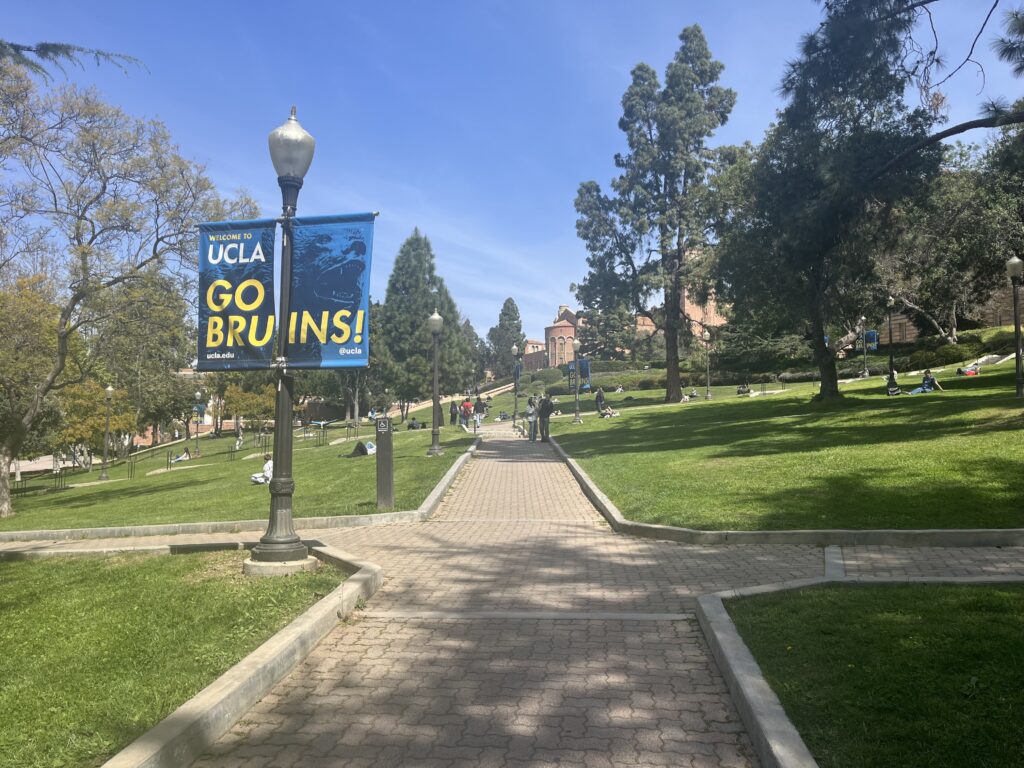
Credit: Baona / iStock_
The graduation stage at all California State University (CSU) campuses are vibrant tableaus of dreams achieved. Each cap and gown tell a unique tale of persistence, ambition, and hope. But beneath the prestige and pride lies a sobering reality. For many students, obtaining a diploma also means accumulating debt.
The CSU’s recent decision to increase tuition by 34% over five years, at an annual rate of 6%, might intensify these disparities, potentially impacting the trajectory of many students’ dreams and futures.
While the CSU cites fiscal imperatives for the increase, it’s crucial to consider its effects on students, particularly those from marginalized backgrounds. Higher education, once the beacon of hope and socio-economic mobility, is slowly being priced out of reach for many. Making this path more expensive threatens to sideline those who are meant to benefit from it the most.
The data doesn’t lie, so let’s dive into it. Our recent collaborative report with The Institute for College Access and Success (TICAS) on the CSU system illuminates disturbing trends. While the CSU’s efforts to boost graduation rates are commendable, the cost of these achievements disproportionately impacts students from racially marginalized communities. We found that from the academic year 2021-22 a disconcerting 63% of Black bachelor’s degree recipients are grappling with student debt. In contrast, only about a third of their white and Asian peers face similar financial burdens. Moreover, only 48% of Black students secure their degree within six years. As these stats indicate, the increase in tuition could threaten the very essence of CSU, known for its diversity and inclusivity.
The data tells a story that reaches far beyond mere statistics. Picture the path of a first-generation college student from a marginalized background. They step onto campus, buoyed by dreams and shouldering the weight of their family’s expectations. As they navigate the academic world, they confront both systemic obstacles and personal challenges.
Yet, as graduation draws near, a looming debt casts a shadow over their achievements. Each loan statement they receive isn’t merely an invoice; it’s a stark reminder of the price of ambition, of wanting to change your life for the better. These are dreams recalibrated or paused, not because of a lack of drive, capability, passion, or talent but for the sake of survival. Thus, the narrative shifts from higher education being a bridge to dreams to a poignant query: Is the investment truly worth its promise?
Add to this the ramifications of the CSU’s recent decision. Annual tuition increases totaling 34% can lead to longer work hours, fewer academic credits, or even postponed semesters. Each subsequent loan statement, irrespective of graduation status, serves as a somber reminder of the tangible costs of dreams and the yearning for a brighter future. Such decisions don’t just delay dreams; they risk derailing them.
At this defining moment, the CSU must introspectively reassess its foundational principles. The recent tuition hike decision has resonated like an unsettling alarm throughout the CSU community. While certain factions might view this as a necessary step to counteract fiscal deficits, for many students, it’s an added layer to an already challenging academic climb. To paint a clearer picture, on most campuses, our most economically disadvantaged students would need to clock in twenty or even upwards of thirty hours of paid work a week, in certain regions, just to afford the cost of attendance.
Beyond individual concerns, society must recognize wider ramifications. Those students we’re most committed to elevating may increasingly feel academia’s gates slowly creaking shut. If financial burdens eclipse the dream of higher education, the entire society loses out. We risk sidelining tomorrow’s innovators, thinkers, leaders, and agents of societal change. The budding poet, poised to inspire an era, might remain silent; the aspiring scientist, on the brink of groundbreaking discoveries might opt for more immediate financial gains by taking a job instead. The community advocates, starting their journey in student leadership and deeply attuned to their community’s historical narratives, might never fully realize their potential to uplift and lead.
This is a rallying cry for unity. As the CSU system charts its course, it is vital that policymakers, educators, students, and the wider community actively participate in this critical dialogue. We must also confront the sobering truth that members of our community will disproportionately bear the inequitable burden of a college degree. It’s crucial that we safeguard against making the pursuit of dreams financially untenable. After all, dreams cultivated within the halls of academia should ignite, illuminate, and elevate – not ensnare.
•••
Dominic Quan Treseler is president of the Cal State Student Association and a political science major at San Jose State University.
The opinions expressed in this commentary represent those of the author. EdSource welcomes commentaries representing diverse points of view. If you would like to submit a commentary, please review our guidelines and contact us.

)

